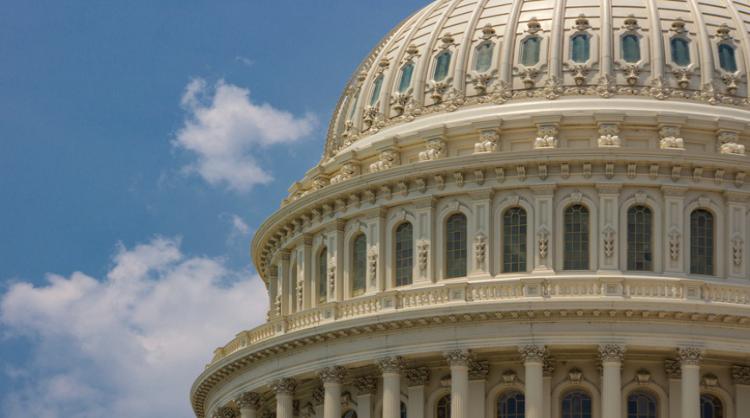Congress and States Begin to Battle to Save Net Neutrality
January 19, 2018 | by Andrew Regitsky

That didn't take long! The FCC's January 4, 2018 Internet Freedom Order is under attack weeks before it takes effect and even before it is printed in the Federal Register. Senate Democrats launched the first barrage earlier this week when they announced they had 50 Senators, 49 Democrats and Republican Susan Collins of Maine to vote to overturn the Order using the Congressional Review Act (CRA).
The Congressional Review Act empowers Congress, by means of a simple majority vote, to remove new federal regulations issued by government agencies and ensure that a similar rule cannot be enacted in the future. When Donald Trump became President, Republicans used the CRA to overturn a flurry of rules created by the FCC in the last few months of the Obama administration, including one-sided privacy rules that would apply to ISPs but not edge providers. Under the CRA, Congress has 60 legislative days (i.e., actual days Congress is in session) to overturn the Internet Freedom Order.
Of course, the reality is this is nothing more than a publicity stunt to use the loss of net neutrality as a campaign issue in 2018. Even if a vote to kill the Internet Freedom passed the Senate, it is extremely unlikely to pass the Republican majority House of Representatives. Moreover, if it somehow passed there, it would almost certainly be vetoed by Trump, who has often spoke favorably about ending net neutrality. Democrats, the minority party in both the House and Senate could never get enough votes to override a presidential veto.
Democrats and Republicans could serve the public if they actually worked together to forge a net neutrality compromise. However, it should be pretty clear to most Americans by now that members of both political parties care mostly about being re-elected and getting majorities for their party. Any public benefits that arise during this self-serving process appear purely coincidental.
A potentially more fruitful effort to save net neutrality was launched on January 16, 2018, when a coalition of 22 Attorneys Generals (21 states and the District of Columbia) filed a Protective Petition For Review of the Internet Freedom Order with the D.C. Circuit Court of Appeals and the First Circuit Court of Appeals in Boston. Similar petitions were filed by Free Press, Mozilla Corp., and the Open Technology Institute.
The petitions were filed before the Order became effective to ensure that the states are included in the lottery process that is used to decide which appeals court will hear the case. Their goal is to have the heavily Democratic D.C. Circuit review their appeal since that Court is most likely to side with them since it recently affirmed the 2015 Net Neutrality Order. Republicans are likely to try to have the case moved out of the D.C. Circuit and to a more favorable court. Isn't it great that we have such a non-partisan legal system!
In their Petition, the Attorneys Generals made the usual case any petitioner makes when trying to get any government order overturned, arguing that the FCC's actions were "arbitrary and capricious," and in violation of the Constitution, the Communications and the Administrative Procedure Act. They were not required to state any facts to back these assertions at this stage of the process.
However, New York Attorney General Eric T. Schneiderman asserted the following:
An open internet – and the free exchange of ideas it allows – is critical to our democratic process. The repeal of net neutrality would turn internet service providers into gatekeepers – allowing them to put profits over consumers while controlling what we see, what we do, and what we say online. This would be a disaster for New York consumers and businesses, and for everyone who cares about a free and open internet. Under the Administrative Procedure Act, the FCC cannot make “arbitrary and capricious” changes to existing policies, such as net neutrality. The FCC’s new rule fails to justify the Commission’s departure from its long-standing policy and practice of defending net neutrality, while misinterpreting and disregarding critical record evidence on industry practices and harm to consumers and businesses. Moreover, the rule wrongly reclassifies broadband internet as a Title I information service, rather than a Title II telecommunications service, based on an erroneous and unreasonable interpretation of the Telecommunications Act. Finally, the rule improperly and unlawfully includes sweeping preemption of state and local laws. (January 16, 2018, New York Attorney General Press Release).
Courts are supposed to give wide deference to the expertise of government agencies. Even if a court disagrees with the agency's conclusion, it is not supposed to overturn the government action if the agency demonstrates that it has a reasonable basis for it actions and is not acting in an arbitrary and capricious manner. In fact, when it affirmed the 2015 Net Neutrality Order, the D.C. Circuit did so, not because it supported net neutrality (even though most of the judges adjudicating the case probably did), but because reclassifying broadband Internet access service as a Title II telecommunications service was a reasonable and therefore, permissible FCC action. It will be interesting to see if the Democratic-laden D.C. Circuit (assuming it hears the new appeals), will give the same deference to the Republican-majority FCC under Trump.

